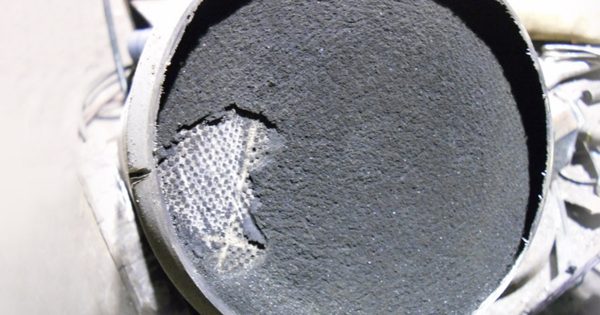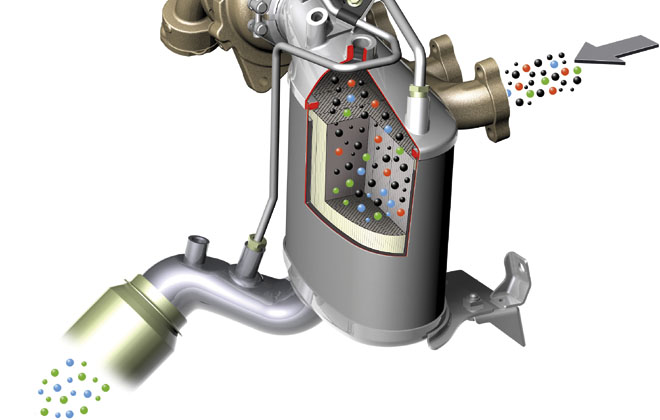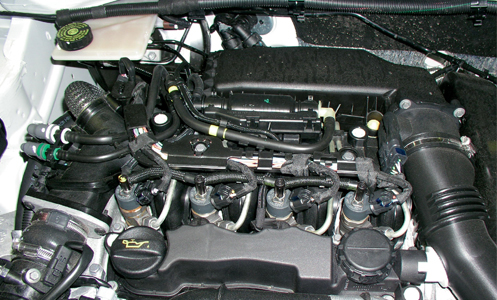Unfortunately, despite their benefits, DPF’s do fail and many diesel car owners do not realise they may be helping to contribute, by not doing enough kilometres and driving too frequently in city areas.
It is hard to predict when a DPF will fail, because some manufacturers have had to replace some in the first 3 years and some never.
There are two main types of failure, blocking and melting.
The most common reasons for DPF blockages are: Short journeys where the engine doesn’t reach optimum operating temperature; Clogged EGR Valve increasing diesel soot passed to the DPF; Faulty fuel injectors sending too much fuel to the air/fuel mixture; Incorrect engine oil upon servicing the car ; Turbocharger failure with oil dripping into the DPF; and also, a High mileage vehicle will find regeneration harder .
The most common reasons for DPF failures are:
Short journeys where the engine doesn’t reach optimum operating temperature
Blown, loose or split inter-cooler hoses or pipes
Clogged EGR Valve increasing diesel soot passed to the DPF
Leaky or blocked pressure differential hoses or pipes or faulty pressure switch
Faulty fuel injectors sending too much fuel to the air/fuel mixture
Incorrect engine oil upon servicing the car – (Low Ash + Low Sulphur required for DPF Cars)
Turbocharger failure with oil dripping into the DPF
High mileage vehicle will find regeneration harder
Symptoms of a Blocked DPF Filter
As the majority of DPF’s are installed on newer cars, you will more than likely have a trip computer. Error codes such as the DPF light or EML (Engine Management Light) will be the first symptoms of a failing DPF….
Followed by some or all of these symptoms:
Loss of power
Reduced fuel economy
Poor throttle response
Harder or failure to start
Limp mode (most likely)
Bad smells
However, sometimes these warning lights can be false alarms and you should try clearing the fault:
1). Take the car for a drive on the freeway at the speed limit and drop down a gear or two to bring engine revs up to 2500. Hold for 20-30 minutes. This will assist the car to do a passive regeneration.
The main reason DPF’s get blocked is short trips and city driving.
Drive Faster. If you are driving slowly everywhere in your large diesel, the DPF will become blocked. Increase your speed and plant your foot to floor to when accelerating to increase exhaust temperature and clear soot levels.
Increase Your RPM. If the DPF light is on, your best bet is to drive at high RPM’s for a prolonged period until the warning lights turn off. This will increase the gases going through the DPF, thus clearing it and increasing the temperature.
Avoid City Centres. If possible, you should avoid slow traffic where possible, especially if you are nearing your DPF limit or have the light currently on.
Use High Quality Fuel. Premium fuels or diesel fuel cleaners include fuel additives that help burn off harmful particles.If you are currently in limp mode, driving at high RPM (step 2) will be your best chance of getting out of limp mode. Once you have normal power, go for a long fast drive on high quality fuel. If the issue remains the next day, get your error codes read by a diagnostic tool.
2). Using a OBD2 diagnostic tool, with suitable DPF regen function, to initiate a forced regeneration. During this the car will sit there for maybe up to 45 minutes and hopefully burn any soot down to ash. If the warning light continue to display, you will notice the following
DPF Australia fills the demand for more realistically priced Diesel Particulate Filters and associated diesel products, and supports the Australian motor trade with technical support.
An Australian based company with extensive technical knowledge, DPF Australia offer you a quality product and great service at a price which is significantly lower than OE DPFs, and a great range of stock right here in Australia.
See https://www.dpfaustralia.com.au/product-category/choose-your-vehicle/
Call: 1300 896 505
Email: enquiries@dpfsales.com.au


